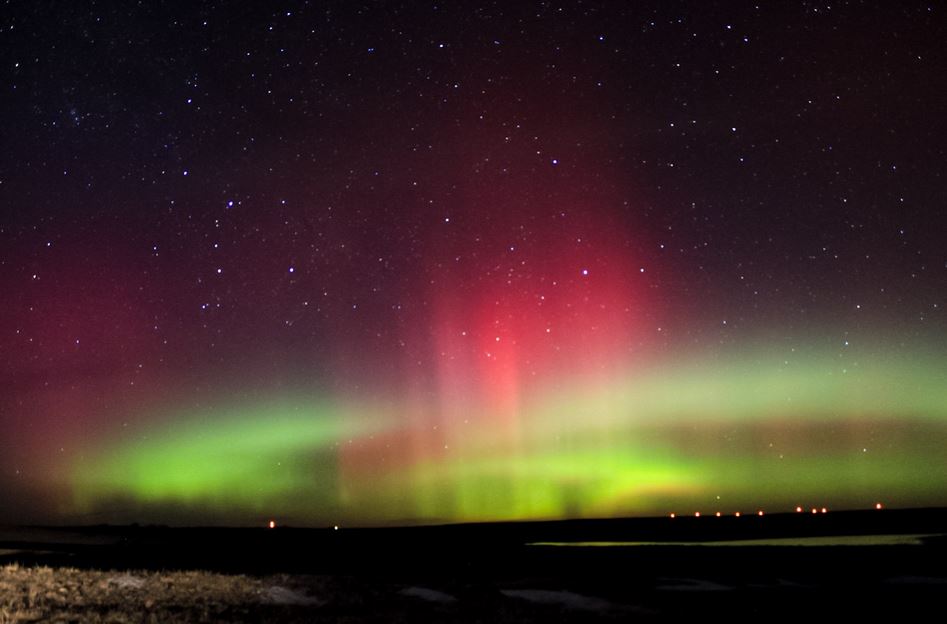Midwest and Northeastern US Anticipate Stunning Display of Beautiful Northern Lights from Space

Parts of the Midwest and Northeastern United States have the chance to witness the beautiful northern lights from space during a celestial display due to a geomagnetic storm triggered by a solar coronal mass ejection. (Photo: newsbreak)
Stunning Northern Lights from Space Set to Illuminate Midwest and Northeastern Skies
According to source, parts of the Midwest and Northeastern United States are in for a celestial treat as they may witness the beautiful northern lights from space on Sunday night. The NOAA Space Weather Prediction Center has issued an alert forecasting that residents as far south as Nebraska and central Iowa may have the chance to see the aurora borealis due to a strong geomagnetic storm triggered by a coronal mass ejection from the sun.
These beautiful northern lights from space ejections are described by NASA as “huge bubbles of coronal plasma threaded by intense magnetic field lines that are ejected from the Sun,” which can often look like “huge, twisted ropes.”
The beautiful northern lights from space viewing opportunities will extend into Monday, although they will be limited to the southernmost areas, potentially clipping central Minnesota. The general public is not expected to be affected by the increased geomagnetic activity. However, infrastructure operators have been advised to take precautions to mitigate possible impacts, particularly regarding the power grid and spacecraft.
READ ALSO: Beautiful Northern Lights Could Grace the Skies in the Northern Hemisphere Next Week
Early Display of Beautiful Northern Lights from Space Amazes Observers
The beautiful northern lights from space made a preliminary appearance in the Northwest and other parts of the country on Sunday morning. Weather observers managed to capture the beautiful northern lights from space in Washington and Wyoming.
Moreover there is a possibility for more beautiful northern lights from space sightings in the future, as solar forces generating the beautiful northern lights from space are predicted to peak at a higher level and more quickly than previously anticipated. The updated forecast from NOAA’s Space Weather Prediction Center indicates that Solar Cycle 25 is expected to peak between January and October of 2024.
READ ALSO: NASA Space Station App Revolutionizes ISS Tracking Experience for Space Enthusiasts
























